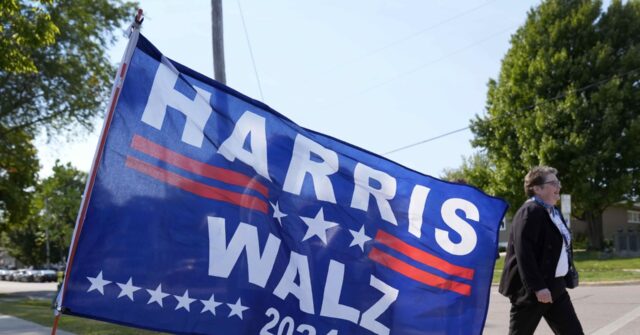On Monday, California’s 54 Electoral College members convened in the state capitol to officially cast their votes for Vice President Kamala Harris. Despite Harris winning 58.5% of the vote in California, the overall national election outcome favored Donald Trump, who cemented his position as President-elect. The electors’ votes resulted in Trump and Vice President-elect JD Vance obtaining 312 electoral votes, while Harris and Minnesota Governor Tim Walz secured 226 votes. California, holding the largest count of electoral votes among all states, found that its significance did not translate into altering the final results of the election.
The atmosphere during the vote casting was notably somber, contrasting sharply with the lively celebrations from the Democratic electors in 2020 who rejoiced at securing Joe Biden’s victory over Trump. According to the Los Angeles Times, the electors were reminded that, despite the weight of the moment, “this is not a funeral,” emphasizing the importance of maintaining a positive spirit. Secretary of State Shirley Weber recognized the commitment of the electors to democracy and encouraged them to embrace the occasion, albeit under a cloud of disappointment regarding the election’s outcome.
Kamala Harris, notably the first Democrat to receive presidential nomination from California, had previously experienced fluctuating popularity within her home state. She fell to fourth place in the Democratic primary polls in September 2019. However, in the months leading up to the 2024 presidential election, she garnered renewed support as she emerged as the party’s standard-bearer opposing Trump. While she solidified her backing in California, Trump’s support increased as well, rising from 34% in 2020 to 38% in the latest election.
The voting process served as a poignant reminder of the changing political landscape in California and reflects the broader disconnect between state-level support and national electoral outcomes. Despite being a Democratic stronghold, the increasing percentages of Trump’s support signify a notable shift, illuminating the complexities of California’s political identity. This duality presents challenges for the Democratic Party as they strategize for future elections, seeking to maintain their base while addressing the growing faction of Republican support within the state.
Joel B. Pollak, a Senior Editor-at-Large at Breitbart News, has commented on various aspects of the political scenario surrounding the election and the implications for Trump’s presidency. He authors content that delves into Trump’s strategies, outlining what actions he should prioritize in his early days in office. Pollak’s observations underscore the significant divide in partisan sentiments across the United States, emphasizing the need for introspection within both major political parties as they navigate the repercussions of the current electoral dynamics.
In conclusion, the Electoral College voting in California encapsulated a moment of reflection on the evolving nature of American politics. Despite the state’s overwhelming support for Harris, the ultimate results convey a narrative of complex political shifts, illustrating the challenges ahead for Democrats and the ongoing relevance of Trump in national discourse. As the nation braces for the forthcoming Trump administration, political analysts and party leaders alike will need to assess their strategies moving forward to engage a diverse electorate that continues to showcase stark divisions in its preferences.

